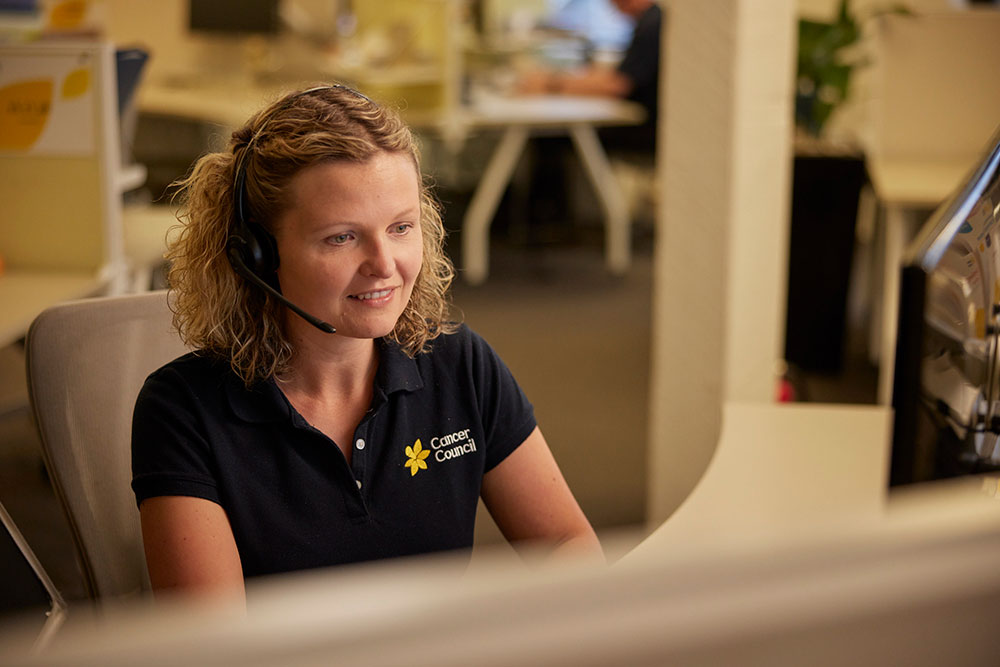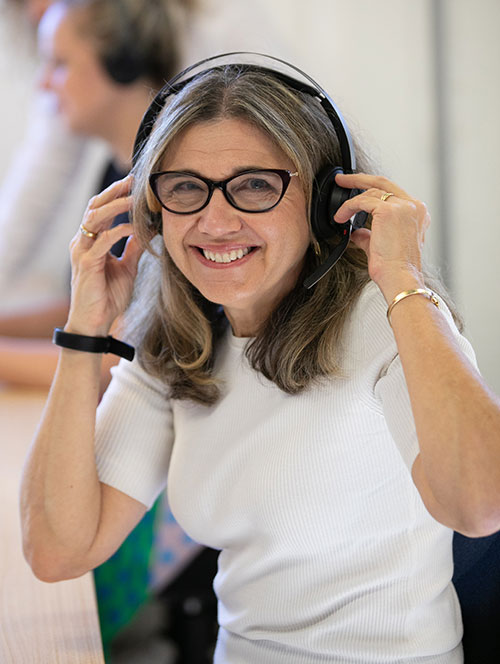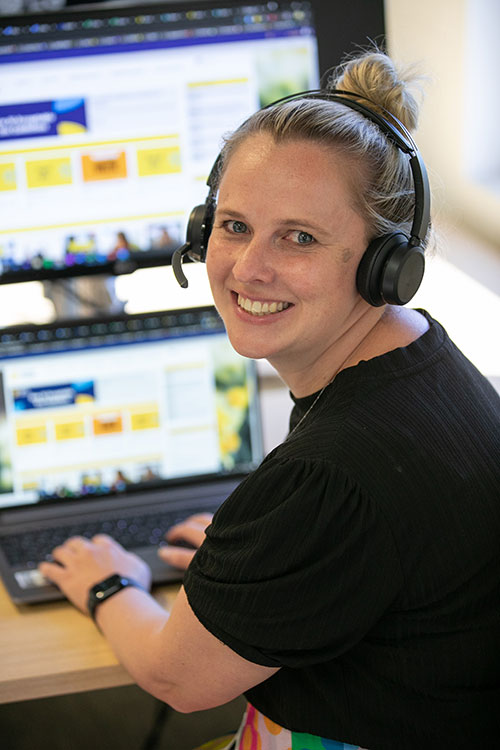
Cancer Council 13 11 20 is a national cancer information and support service available to anyone with a question about cancer including patients, carers, family members and health professionals.
Staffed by experienced cancer health professionals, the 13 11 20 service is available Monday to Friday, 9 am to 5 pm (excluding public holidays).
FAQs about our 13 11 20 service
Our 13 11 20 service:
- listens to your patients, or their carers concerns, and identifies their needs at any stage of the cancer journey.
- helps address the emotional and practical needs of your patients and their carers, including referral to Cancer Council NSW services
- navigates to external support organisations and provides short term emotional support for patients
- answers general questions about cancer prevention, risks, investigations, diagnosis, treatment and its side effects
- provides up-to-date, evidence-based information resources
- discusses carer/family issues.
| Health professionals can refer patients and carers to 13 11 20 using the online referral form. |
Our 13 11 20 staff can:
- talk to your patient or their carer about any cancer-related concerns
- assess your patient or their carer’s supportive care needs to determine what support may be beneficial
- provide information about CCNSW supportive care services and other service providers, and navigate to these services where appropriate.
Our 13 11 20 team can support your patients and their carers along the cancer continuum, from diagnosis and treatment through to survivorship and palliative care.
- When you refer your patient to 13 11 20 using our online form, one of our experienced health professionals will contact them.
- Please let your patient know a 13 11 20 health professional will contact them within 3 business days of receipt of referral unless otherwise specified on the referral notes.
- Upon contacting your patient, we will update you on the outcome by email.
- Should we fail to contact your patient after 3 attempts, you will be notified by email.
Anyone can call 13 11 20:
- people living with cancer
- their families
- carers and friends
- healthcare professionals
- the general public.
Get to know our 13 11 20 consultants
Erin
Registered Nurse 13 11 20 Information and Support service
Erin is a registered nurse with a graduate certificate in cancer and palliative care. With extensive experience working at cancer treatment centres, Erin has provided chemotherapy, pain management and palliative care to a diverse patient group including adolescents and young adults.
Erin brings this expertise to her role as a 13 11 20 consultant, supporting the practical and emotional needs of individuals impacted by cancer. She“ understands having someone available to listen to their concerns and provide answers can be enough to reduce stress and lessen the impact of cancer in that moment.
By giving our time and listening ear, patients have the opportunity to ask all their questions and ease some of their worries. It’s such a great feeling when you get to the end of a conversation and the individual says they feel much better than they did at the beginning of the conversation.
 Jan
Jan
Jan is a registered nurse with a diverse background in nursing however it was her specialisation in Oncology Jan developed her passion for cancer care. Jan appreciated the opportunity to provide support across all aspects of patient care throughout the cancer continuum, be it delivering chemotherapy or working in palliative care community outreach. Jan has over 20 years’ experience at Cancer Council NSW including working in peer support and as facilitator in Telephone Support Groups for people living with or caring for people with advanced cancer.
When Jan provides 131120 service, she spends a lot of time listening to patients or their carers concerns, identifying their needs, providing short-term emotional support, and navigating people to the support they may require.
Identifying someone’s needs and providing strategies or navigating to support services can minimise some of the negative impacts of cancer before things get out of control.
